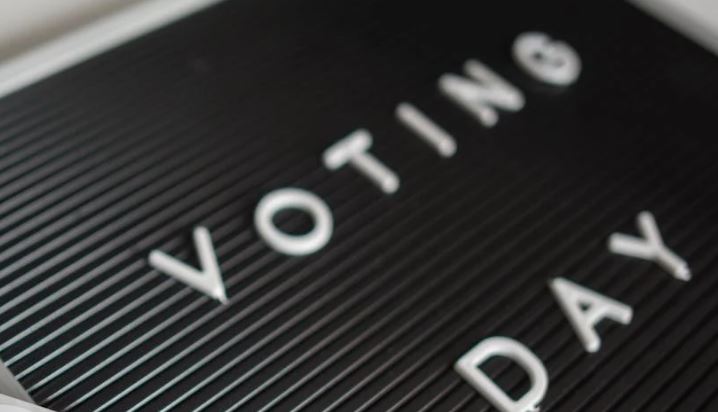Voting is one of the most powerful tools citizens have to influence the direction of their country and community. But in order to exercise this power responsibly, it’s crucial to understand the importance of being educated on the issues, candidates, and systems at play. A well-informed electorate is the backbone of any healthy democracy. In this article, we’ll explore why you should vote, and why education plays a central role in making your vote meaningful.
Why You Should Vote
- Shape the Future
Your vote is one of the most direct ways you can influence the future. Whether you’re choosing leaders, deciding on policies, or shaping the direction of important national or local issues, voting allows you to express your values and priorities. This is especially important in a democracy, where the government derives its power from the consent of the governed. By voting, you contribute to decisions that will affect your life, your community, and future generations. - Civic Responsibility
Voting is a key part of being an engaged citizen. While you may not always agree with every candidate or every issue, participating in elections ensures that you’re taking part in the democratic process. It’s a responsibility that helps uphold democratic values and keeps governments accountable. If citizens don’t vote, they effectively let others make decisions on their behalf, and this can lead to a lack of representation for their needs and concerns. - Voice in Policy Decisions
From education and healthcare to taxation and climate change, your vote helps shape the policies that affect your everyday life. Elections are not just about choosing individuals; they’re about deciding on the future direction of important issues. If you care about how your community or country is governed, voting is the best way to ensure that the policies reflect your values and needs. - Preserve Democracy
The right to vote is one of the cornerstones of democratic systems, and it has been fought for by many groups throughout history. For many marginalized communities, voting represents a victory for civil rights and equality. By voting, you honor the sacrifices made by those who fought to expand suffrage and ensure that everyone has a say in how they are governed. - Collective Power
Voting in elections, especially in local and midterm elections, allows citizens to leverage collective power. A small group of engaged voters can make a big difference, especially in close races where a few votes can determine the outcome. Voting ensures that the most widely shared interests are represented, making it a cornerstone of not only democracy but also of social justice.
The Importance of Education in Voting
While voting is a right, it’s not always an easy decision to make. In order to vote effectively, it’s important to be educated about the candidates, the issues, and the political system. Here’s why education plays such a critical role in responsible voting.
- Informed Decision-Making
An educated voter is a more informed voter. Education empowers you to understand the policies that candidates and parties are proposing. Without this knowledge, it’s easy to make decisions based on misinformation or popular but unverified claims. A lack of education may lead to voting for candidates or policies that do not align with your values or long-term interests. By educating yourself on the issues and the implications of different policies, you make choices that are well-informed, not reactionary or based on surface-level understanding. - Navigating Complex Issues
Modern political landscapes are often filled with complex issues that require thoughtful consideration. From climate change and healthcare to tax reform and foreign policy, many of today’s critical issues demand a nuanced understanding. Education allows you to break down these complex issues and assess how different proposals will affect society as a whole. Without education, it’s harder to evaluate which candidates and policies will be most effective in solving problems. - Recognizing Misinformation
In the digital age, misinformation and propaganda spread quickly. Fake news, biased media outlets, and misleading ads can skew public opinion and cloud judgment. Education in media literacy—understanding how to critically analyze information—can help you separate fact from fiction. When you are educated, you are less likely to fall for misleading information that could influence your vote in the wrong direction. - Understanding Your Rights and Duties
Education is essential for understanding the full extent of your rights and responsibilities as a voter. From understanding the issues on the ballot to knowing the voting process and your eligibility, a well-educated electorate ensures that every vote counts. Without this knowledge, people may inadvertently disenfranchise themselves, whether by missing deadlines, not understanding ballot measures, or failing to meet voting requirements. - Promoting Civic Engagement
When people are educated about the political process, they are more likely to stay engaged and participate in other forms of civic action. This includes attending town hall meetings, joining local activism, and participating in public discourse. Education fosters a sense of civic duty, encouraging individuals to take a more active role in their community and country beyond just voting.
Conclusion: Voting and Education Go Hand in Hand
Voting is a powerful tool that allows you to have a say in how your society is governed. But in order to use that power responsibly, education is crucial. The more you understand about the candidates, policies, and issues on the ballot, the more effectively you can make decisions that reflect your values and priorities. Education empowers you to navigate the complexities of modern politics, guard against misinformation, and ensure that your vote counts in a meaningful way.
By voting and educating yourself, you not only participate in the democratic process but also strengthen the foundation of democracy itself. When informed citizens engage with the political process, the entire society benefits from more thoughtful, effective decision-making. So, the next time there’s an election, remember: voting is a right, but education is what makes that vote truly meaningful.

